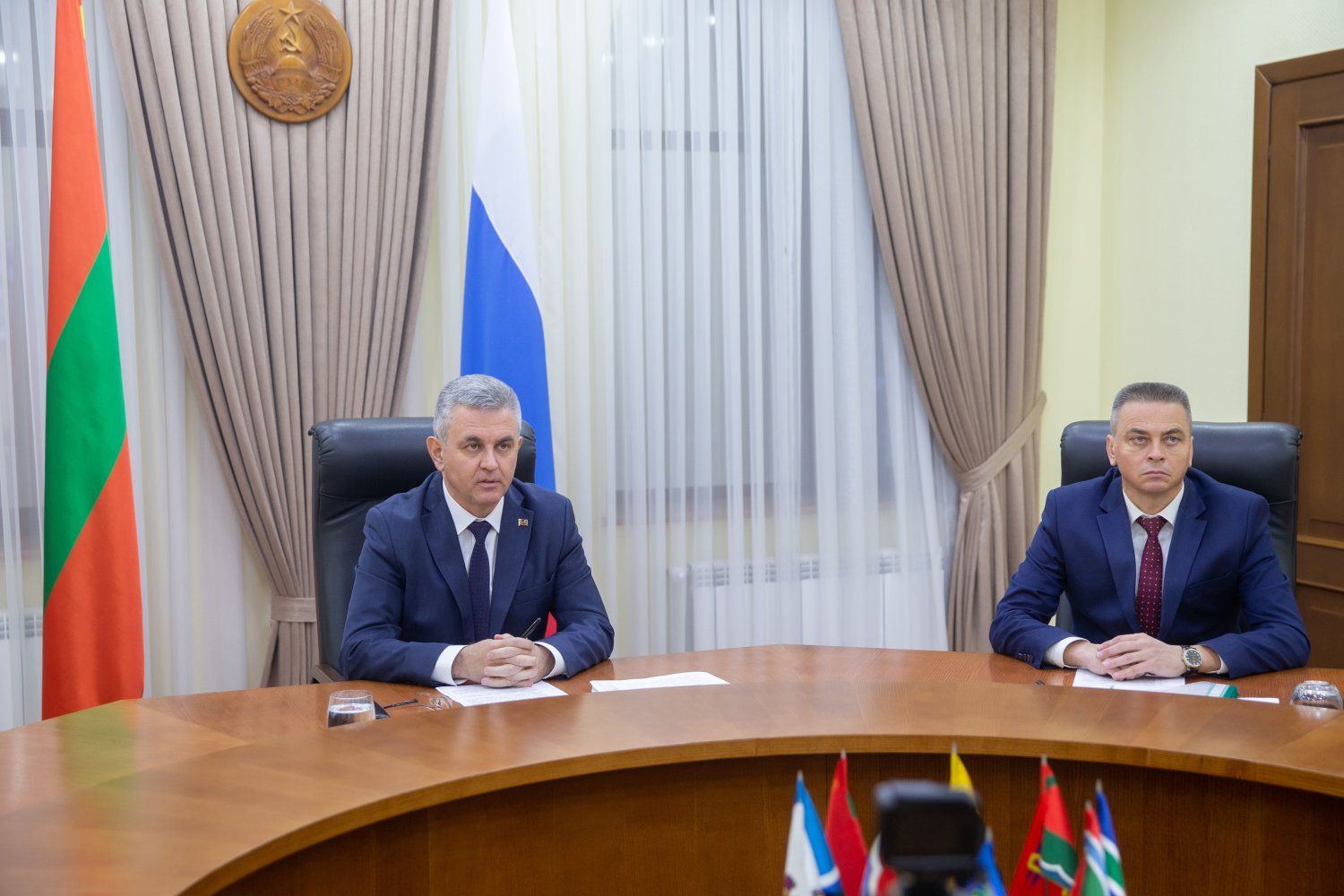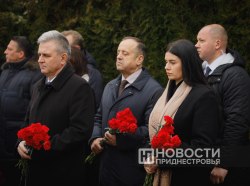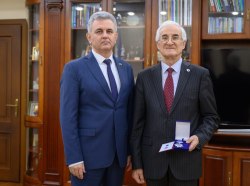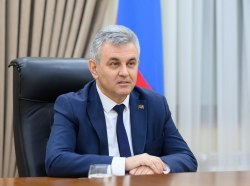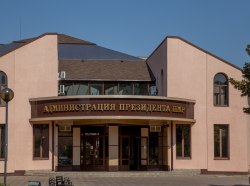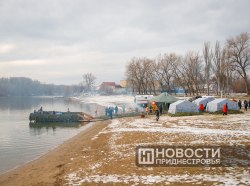The President held an extended meeting with officials involved in organizing events aimed at preventing or minimizing the negative consequences of a possible energy crisis. They worked in a video conference mode. The discussion began with the development of the provisions prescribed in the presidential decree on the creation of a nationwide Operational Headquarters. It was headed by the Chairman of the Government of the PMR Alexander Rosenberg by decision of the President. The headquarters at the municipal level are managed by the heads of state administrations at the local level. General control is under the President.
They talked about a single call center. It has already been created under the Emergency Situations Department of the Ministry of Internal Affairs of the PMR. It has been functioning since yesterday. So far, four employees are involved. More than two hundred calls have already been received, said Vitaly Neagu. He considers that it is right to launch the process of interaction with the population through a hotline in advance, as this will allow us to establish work before a really difficult period. The Minister of Internal Affairs drew attention to the fact that cooperation with local headquarters has not yet been established at the same time. Vadim Krasnoselsky set today as the deadline for establishing connections.
Vitaly Neagu reported that an electronic card will be created for each citizen who contacts the call center, which will allow monitoring the execution of requests. The speaker drew attention to the fact that residents of the republic do not quite correctly perceive the measures taken by the state to provide those in need with firewood. There are many calls with an "order" to deliver a supply of solid fuel to an address free of charge. The President instructed to carry out additional information work – to explain to citizens who can count on free allocation of firewood and in what volume, and who and how can purchase it.
They mentioned at the meeting the Elektromash plant, which previously produced the so-called prefabricated potbelly stoves (welded), and is now preparing to launch a production line for solid cast iron equipment of this profile, as well as boilers that run on wood.
Another important aspect is ensuring safety. They talked about the risks of using gas cylinders in apartment buildings. The question is: what to do if such are found. This is an offense. Therefore, the gas cylinder as a tool for committing it is subject to confiscation.
Sergey Obolonik detailed information about the process of transition to a new energy supply regime under the State of Emergency. He was addressed with clarifying questions regarding the capabilities of the Dubossary Hydroelectric Power Station. The statements that the hydroelectric power station is ready to meet 80% of the Pridnestrovian demand are greatly exaggerated. Such capabilities could be discussed at the time when the Dniester was much more full-flowing. It was possible to generate up to 48 megawatts per hour (with the republic's need for 50 megawatts) then. Now the water level in the river is much lower, and the regeneration capacity has been proportionally reduced – no more than 16-18 megawatts.
They talked at the meeting about which objects will receive gas. Among them there are apartment buildings for the operation of kitchen gas stoves. The objects that will not be affected by the rolling blackout system in case of the need to reduce electricity consumption are also designated. There are 109 items on the list. It is noted that the rolling blackout is intended to compensate for the sharp increase in the load on the network. Sixteen zones are conditionally identified. The issues discussed at the meeting were related to street lighting, the operation of electric transport, the creation of teams for servicing generators, the insulation of entrances of multi-storey buildings, the functioning of kindergartens, the organization of the activities of heating points and temporary stay of citizens who find themselves in a difficult life situation. The heads of state administrations reported on the level of readiness. The heads of ministries and departments made reports. These officials are members of the Operational Headquarters. Everyone is required to be in touch around the clock, have up-to-date information, promptly inform about any changes, needs, and emerging difficulties, the President directed.

